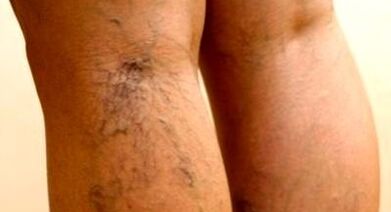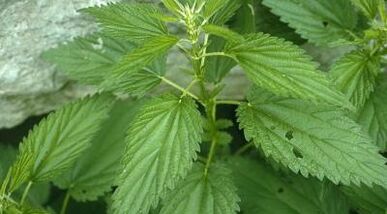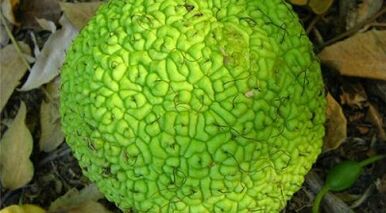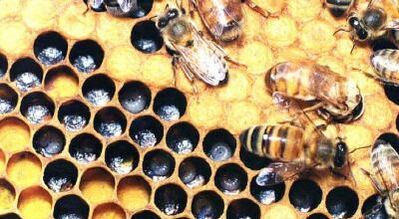
The legs are the ones that suffer the most from varicose veins.The part of the body furthest from the heart needs a rest regimen, which supports tired and weakened blood vessels.And we “explode” our little paws until we see expanded surface web, swelling, painful, knobbly bumps, and lose sleep from the pain.
Treating varicose veins with home remedies is not an alternative to medications.Because the main medicines are based on plant materials.To cure a disease, it is advisable to use the accumulated experience of traditional medicine.
Required properties
All methods used must eliminate or prevent the causes of varicose veins:
- improve the density and elasticity of the vascular wall of the veins;
- restore fallen valves;
- increase blood flow in the vessels of the legs due to the fluidity of blood, reducing its coagulability;
- prevent the formation of blood clots and thrombophlebitis;
- have an anti-inflammatory effect;
- To relieve local edema, the diuretic property is useful.
For use at home, you should choose drugs that:
- easy to prepare and use yourself;
- not have toxic effects;
- Stores well in the refrigerator;
- can be grown on a windowsill or in a country house, bought on the market;
- relatively cheap.
Treatment methods
All traditional methods of treating varicose veins are divided into general and local.
The most common include a certain diet, baths, ingestion of infusions and decoctions.Many herbal remedies are used both internally and topically.
Local application is based on the use of lotions and compresses applied to the most painful area.You need to learn how to prepare ointments.
Doctors suggest the duration of treatment courses starting from a month or more.Breaks of no more than a week are possible, replacing one product with another.
Diet for varicose veins
Doctors with extensive experience do not recommend starting the treatment of varicose veins in the legs without a fasting diet.It should be continued for 5-7 days, regardless of the presence or absence of excess weight.
The essence of the diet: exclusion of white bread, pastries, sweets, confectionery, spicy seasonings, alcohol, coffee, meat and fish dishes.The liquid is not limited.It is necessary to eat only vegetarian food: as much as possible fruits and natural juices.Cranberries, cranberries, sea buckthorn and figs are considered especially valuable.Two days later, rice porridge, buckwheat, fresh vegetables in a salad with vegetable oil and young nettle soup are added.
This diet is recommended monthly for 2-3 days.People with enlarged leg veins are recommended to completely avoid starchy foods (bread and baked goods made from high-quality flour, boiled potatoes).You can boil potatoes with their skin on and add bran to your food.
General treatment procedures.
They have an effect on the entire body, normalize blood circulation.
Bathrooms

Varicose veins can be treated with baths.They are contraindicated in cases of thrombophlebitis and trophic ulcers.
The contents of the bath are prepared in advance: boil half a kilo of oak, willow and chestnut branches in equal parts for half an hour (it is better to do this in an enameled bucket).Then add 4 pharmaceutical packets of herbs to the solution (chamomile, string, St. John's wort) and steam overnight.Separately, in the morning, boil rye bread (3 loaves), filter and pour into the bath.
The procedure should be done before going to bed for about 40 minutes, the water temperature should be maintained at 38-40 degrees.
For baths with soda, it is necessary to dissolve a whole packet per water bath or 6-7 tablespoons per 5 liters for feet only.
You can prepare just willow bark (two handfuls of broken twigs in a three-liter saucepan), boil for half an hour.
For foot baths, two to three tablespoons of dried raw materials of crushed bark are enough;Cudweed is also recommended (2 packets of 50 g each).
Combinations of herbs are recommended: hazelnut leaves, birch, chamomile flowers, clover, hops, pine buds.
After bathing, it is necessary to perform a light massage from the bottom up, put on elastic stockings and place your feet slightly elevated.
Recommendations for internal use
Popular recipes for oral administration are very inventive.They offer a remedy or a combination, decoctions, water infusions, alcohol tinctures.The decoction is easiest to prepare in a large thermos, maintaining all the properties of a water bath.It must be strained before use.
- Antonov apple infusion- Two or three small apples are poured with a liter of boiling water and wrapped for four hours.Then knead them and drink half a glass of decoction with honey on an empty stomach and at night.
- nettle- a known remedy for varicose veins.2-3 tablespoons of dried leaves are placed in a half-liter thermos with boiling water.40 minutes are enough for the infusion.It is necessary to drink 1/3 of a glass an hour after eating.
- Alcoholic tincture of celandine.- Sold in a pharmacy, it is recommended to drink 9 to 10 drops with a tablespoon of milk, before meals, three times a day.
- soda solution— prepared before use (one teaspoon in a glass of warm water), it is recommended to drink in the morning and evening.
- Treatment with garlic and honey.- chop 250 g of garlic, mix with 350 g of honey, leave for at least ten days.It is recommended to take a tablespoon half an hour before meals.
- A decoction of a mixture of oak bark, willow and chestnut branches.boil for half an hour, then add the chamomile, St. John's wort, thread and let sit for 12 hours.First drink 50 ml with honey, then 150 ml after two days.

It is recommended to combine the use of herbal remedies with baths and local treatments.A course of therapy lasts two months.
Local treatment
Local means an effect only on the pathologically inflamed area of the leg veins.
Use juices for lotions
Local procedures in the form of compresses and lotions will require preliminary preparation of the necessary solution and ointment.
- apple cider vinegar- considered a means of improving vascular tone.They rub it on painful areas with dilated veins twice a day.For internal use, add two teaspoons per 250 ml of water.
- potato juice- used to treat ulcers.The ground pulp is applied to the ulcer and bandaged. After five hours the bandage is changed.
- Cabbage leaf compresses- helps relieve pain and inflammation of the skin.The leaf is tied overnight.
- hop cones- Prepare one tablespoon per glass of boiling water.Lotions of the prepared medicine are applied or you are allowed to drink a glass before meals.
- wormwood- Leaves and flowers are used, they are ground to a paste, diluted with kefir and applied to areas with dilated veins.
- tomatoesOnly those that are sufficiently ripe should be used.The varicose nodes are sliced and covered with a bandage.After 3-4 hours, the compress is replaced with a new one.
alcohol tinctures

Kalanchoe – Used as a rubbing alcohol tincture.You need to prepare the solution correctly: after cutting, leave the leaves in the cold for 5-7 days, then grind in a meat grinder, add vodka (you can use the volume as a guide, the Kalanchoe in the container should be 2 times smaller), leave in the dark for another week.After filtering, the product can be used in the treatment of varicose veins.It is suitable for long-term storage.
An alcohol tincture (2/3 of the plant material) is prepared from white acacia flowers and birch buds for a week to lubricate the skin of diseased veins.
In oriental medicine it is known that the properties of the Adam's apple have a positive effect on vascular tone.
Green walnuts: crush into small pieces and pour olive oil.It is necessary to stay in the sun for at least forty days.After which you can lubricate the affected areas.
To cleanse trophic ulcers and relieve inflammation, a medicinal mixture of chamomile, St. John's wort, yarrow, calendula, oak bark and horsetail is recommended.
Horse chestnut is used both externally and internally.The leaves and flowers of the plant are used.For compresses, brew with water as if it were tea.An alcohol tincture is prepared for internal use.Keep in a dark place for at least two weeks.Drink 30 drops before meals.
The Adam's apple is the fruit of a rare maclura tree that grows in the southern regions.It should not be used internally, as the juice is poisonous.A grinding alcohol tincture is prepared from crushed fruits.It is recommended to keep it in the dark for a month.
How to prepare ointment at home
In ointment form, herbal remedies stay on the affected area longer and penetrate the area better.Vegetable oils, decoction of flax seeds, lard and chicken fat are used for ointments.A concentrated herbal decoction is added to the melted and heated base.Cook over low heat, stirring, for five minutes.
Herbal mixtures are used with ointments;it is not necessary to prepare them daily: eucalyptus leaves, dandelion roots, celandine, lemon balm, lilac flowers, clover, chamomile, calendula, spruce needles.Everything is made in equal quantities before being mixed with the ointment base.

These ointments should be stored in the refrigerator.Apply a thick layer to the skin using light rubbing movements.Cover with compress paper and a warm bandage.It is better to apply ointment compresses at night.
Other treatments
Bee stings contain hirudin, which thins the blood and prevents clots from forming.Treatment with bees requires a mandatory sting in the external venous ganglion.At first, the patient experiences pain and burning, these phenomena soon disappear on their own and with them the protruding venous nodes are eliminated.
Possible consequences
Home remedies for varicose veins are far from harmless.These are concentrated plant extracts that have strong side effects when taken orally.This especially applies to people with diseases of the stomach and pancreas.Herbs affect the acidity of gastric juice.Therefore, its use can cause an exacerbation of chronic diseases of the digestive system.
It is necessary to control allergic manifestations (itchy skin, rashes, swelling).If such symptoms occur, discontinue further use.
To use traditional methods, you need faith in the remedy and patience.Few people heed the recommendation to walk in thin cotton socks through the dew on the grass at dawn and not take them off until the feet are dry.This lovely recipe brings out the best in nature.
